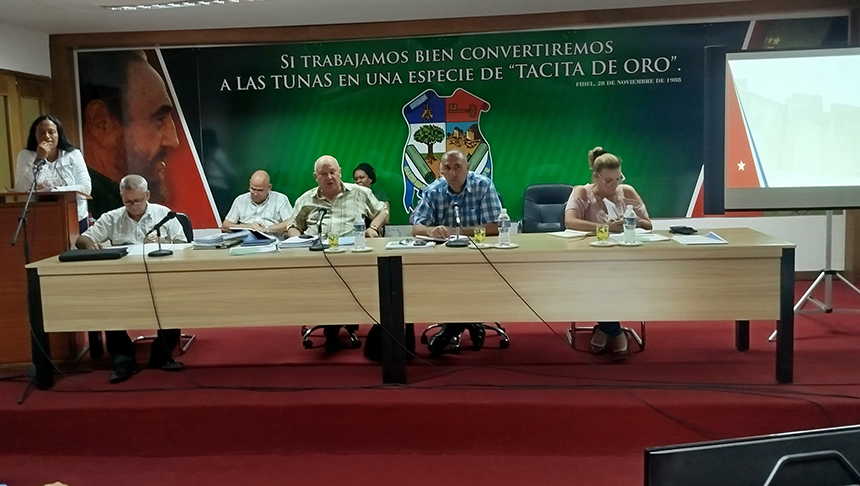
The lack of oversight in several agricultural activities and the poor linking with producers have caused the province of Las Tunas to fail to meet 27 of the 50 indicators nationally measured, and the population to lack some of the food it demands.
Las Tunas, Cuba. – This is a reality that requires immediate transformation in the eight municipalities, starting with a change of mindset of companies’ directors and core business units in the sector, agricultural and livestock specialists, and representatives of organizations.
Deputy Prime Minister Jorge Luis Tapia Fonseca reflected on these issues, insisting that Las Tunas could produce more root and fresh vegetables, grains, milk, meat, eggs, wood, and other items if more attention is paid to each of the processes.
He said this is a way to boost the local and national economy, and noted that current plans do not meet the needs of the population. Therefore, he added, each entity must try to achieve the production records set in previous years.
Regarding livestock, Tapia Fonseca stated that milk collection and beef delivery to the industry are almost always evaluated; however, very important issues are overlooked, such as the death of calves, low birth rates, the slaughter of females, the lack of bulls for breeding, and the planting of animal feed.
He also pointed out the persistent illegalities in the control and use of land and the problems associated with the installation of livestock modules, the marketing of production, the management of mini-industries, and the insufficient monitoring of municipal agro-industrial companies.

The Deputy Prime Minister also referred to fish capture in both aquaculture and the platform and urged the delegation from the Ministry of Agriculture and the Azcuba sugar group to take advantage of their water bodies to obtain animal protein.
Through his exchange with those present, he demonstrated the lack of awareness of aspects of the investment plan and emphasized the genetic development program, the 67-hectare fruit farm, and the Breñosa-La Cana water transfer, which will guarantee water for the Gayol productive pole, in Puerto Padre.
Regarding local development projects with international funding, he indicated that they should evaluate the use of the material resources allocated and their impact on food production, while emphasizing the importance of agroecological practices and agricultural extension.
Finally, he indicated that productive linkages with non-state management units should be reviewed, and meetings should be held between municipal governments and the agencies that serve cooperatives: the banking system, the insurance company, and the National Tax Administration Office.
The meeting was also chaired by Osbel Lorenzo Rodríguez, first secretary of the Cuban Communist Party’s Provincial Committee, and Governor Yelenis Tornet Menéndez, who agreed that the agricultural sector control system must be rectified and that there is no other option but to work to overcome the difficulties and produce food for the people.